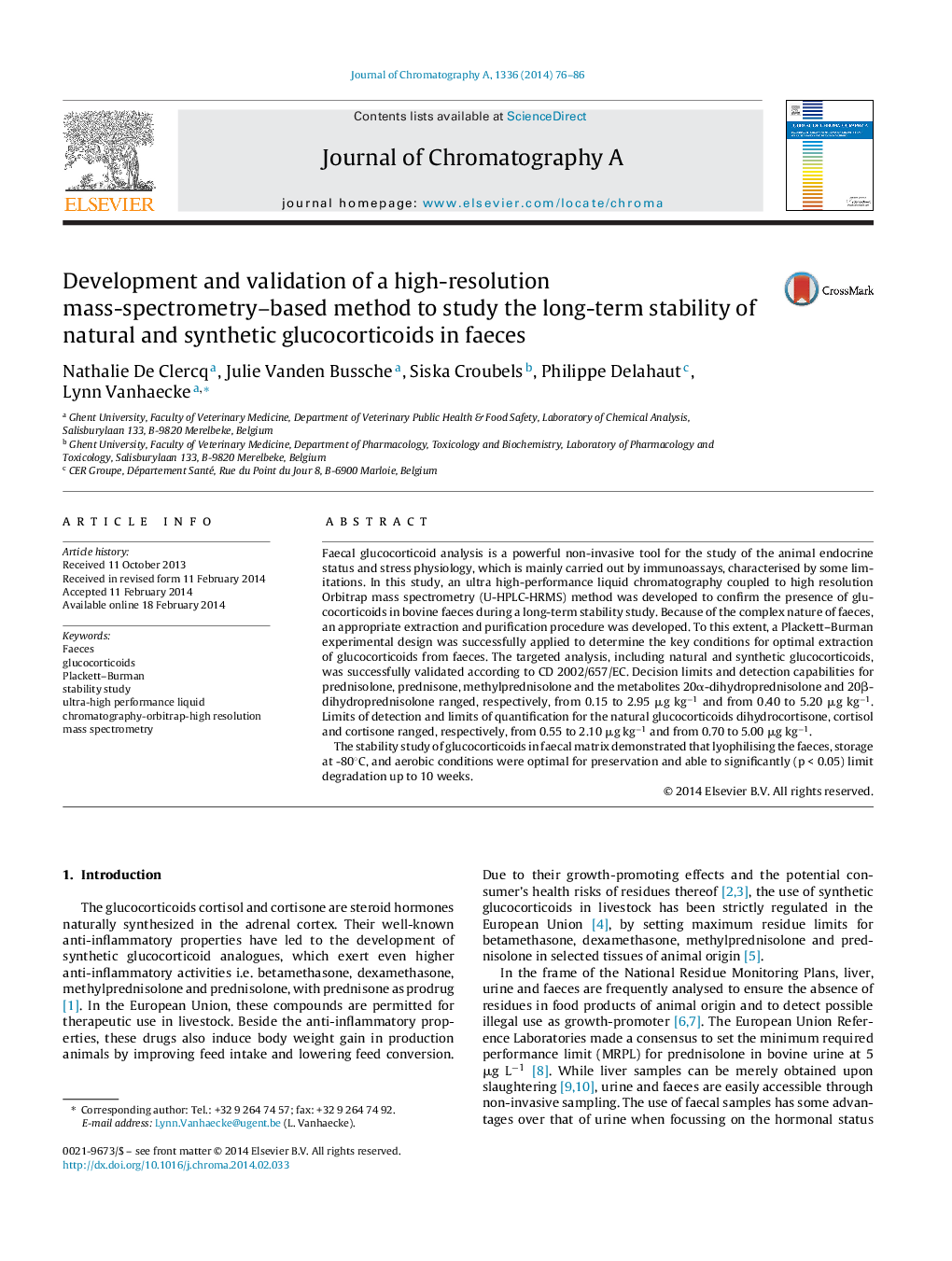| Article ID | Journal | Published Year | Pages | File Type |
|---|---|---|---|---|
| 1199614 | Journal of Chromatography A | 2014 | 11 Pages |
•Plackett–Burman successfully applied for generic extraction of glucocorticoids.•UHPLC coupled to full-scan high-resolution Orbitrap MS analysis at 50,000 FWHM.•Validation according to CD 2002/657/EC.•Long-term stability (20 weeks) of glucocorticoids in bovine faeces.•Storage at -80°C and lyophilisation were most optimal.
Faecal glucocorticoid analysis is a powerful non-invasive tool for the study of the animal endocrine status and stress physiology, which is mainly carried out by immunoassays, characterised by some limitations. In this study, an ultra high-performance liquid chromatography coupled to high resolution Orbitrap mass spectrometry (U-HPLC-HRMS) method was developed to confirm the presence of glucocorticoids in bovine faeces during a long-term stability study. Because of the complex nature of faeces, an appropriate extraction and purification procedure was developed. To this extent, a Plackett–Burman experimental design was successfully applied to determine the key conditions for optimal extraction of glucocorticoids from faeces. The targeted analysis, including natural and synthetic glucocorticoids, was successfully validated according to CD 2002/657/EC. Decision limits and detection capabilities for prednisolone, prednisone, methylprednisolone and the metabolites 20α-dihydroprednisolone and 20β-dihydroprednisolone ranged, respectively, from 0.15 to 2.95 μg kg−1 and from 0.40 to 5.20 μg kg−1. Limits of detection and limits of quantification for the natural glucocorticoids dihydrocortisone, cortisol and cortisone ranged, respectively, from 0.55 to 2.10 μg kg−1 and from 0.70 to 5.00 μg kg−1.The stability study of glucocorticoids in faecal matrix demonstrated that lyophilising the faeces, storage at -80°C, and aerobic conditions were optimal for preservation and able to significantly (p < 0.05) limit degradation up to 10 weeks.
